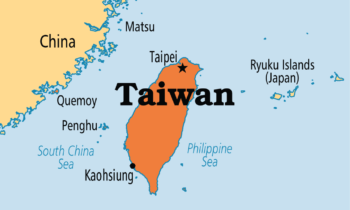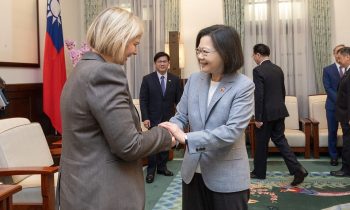 South African anti-apartheid hero Albie Sachs and former Norwegian prime minister Gro Harlem Brundtland, hailed as the “godmother” of sustainable development, were among five people Thursday presented with the first Tang Prize, touted as Asia’s version of the Nobels. Taiwan President Ma Ying-jeou presented the awards, which honour outstanding contributions to the environment, human rights, medicine and Sinology.Brundtland, recognised for her life-long dedication to protection of the environment, called for urgent action to address environmental and climate change over the last quarter of a century.
South African anti-apartheid hero Albie Sachs and former Norwegian prime minister Gro Harlem Brundtland, hailed as the “godmother” of sustainable development, were among five people Thursday presented with the first Tang Prize, touted as Asia’s version of the Nobels. Taiwan President Ma Ying-jeou presented the awards, which honour outstanding contributions to the environment, human rights, medicine and Sinology.Brundtland, recognised for her life-long dedication to protection of the environment, called for urgent action to address environmental and climate change over the last quarter of a century.
“We’re not far sighted enough to do what is needed” on climate change, she warned, addressing the guests invited to the presentation ceremony in Taipei.
But she added: “I do believe we’ll be able to lay out scientific and technical challenges for the global communities towards a better balance of economic development, environment integrity and social quality for the benefit of all humanity.”
A former director general of the World Health Organization, she also headed the UN World Commission on Environment and Development. The commission’s work paved the way to the first Earth Summit, which led to the Kyoto Protocol on greenhouse gases.
Sachs, who lost an arm and the sight of one eye in a car-bombing by apartheid forces in Mozambique in 1988 and was later appointed to South Africa’s Constitutional Court by Nelson Mandela, was recognised “for his many contributions to human rights and justice globally”.
Also among the first recipients of the prize founded in 2012 by Samuel Yin, one of the richest men in Taiwan, were immunologists James P. Allison of the MD Anderson Cancer Center at the University of Texas, and Tasuku Honjo of Kyoto University for their contributions in the fight against cancer.
The other recipient was Chinese American historian and Sinologist Yu Ying-shih, the winner in the Sinology category.
Each winner received Tw$50 million ($1.7 million), with Tw$40 million in cash and the remainder in a grant—a richer purse than the eight million Swedish kronor ($1.2 million) that comes with a Nobel Prize.
Named after China’s Tang Dynasty (AD 618-907), the prize was founded in 2012 with a donation of Tw$3 billion.
Yin has said he will donate 95 percent of his wealth to charity during his lifetime. His net assets are estimated by Forbes magazine at $4.5 billion.
(phys)



